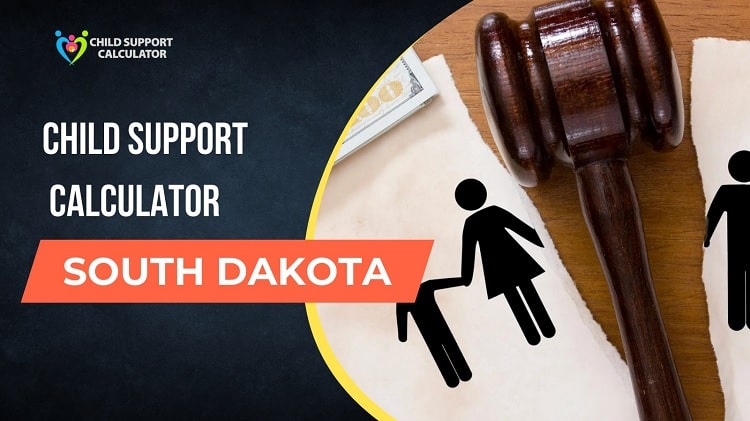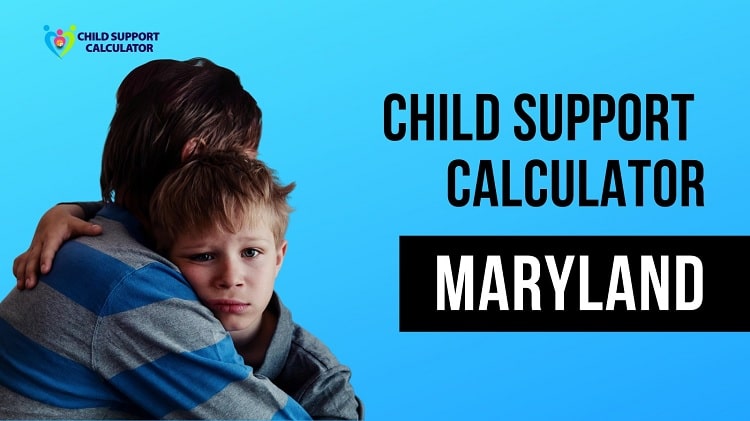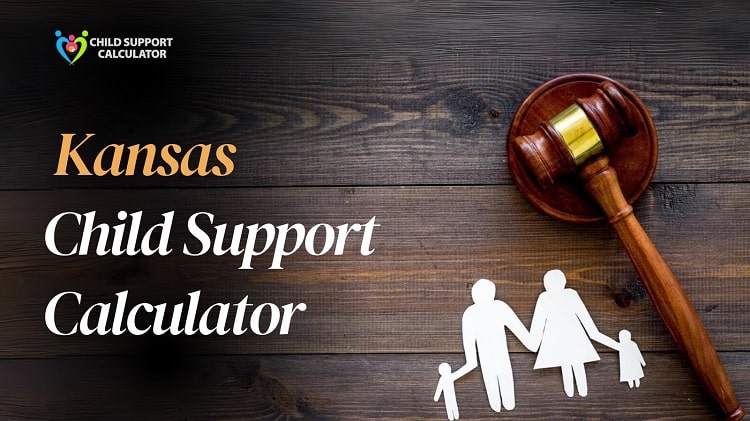South Dakota Child Support Calculator (Sd) | Guidelines – 2024
Both parents have a responsibility to support their children in South Dakota. In most circumstances, however, only the non-custodial parent is responsible for minimum child support payment. A non-custodial parent is a parent who does not have primary care, custody, or control of a minor child. Despite the fact that the custodial parent is also responsible for average child support, the law assumes that the required amount would be spent directly on the child.

The amount of support each parent pays is determined by the South Dakota child support calculator by their income and the amount of time they spend with their children. The state establishes a basic support amount based on the average child support guidelines, which are just a fee schedule, but depending on the circumstances, the ultimate amount of support a court would impose might be substantially different.
How to Calculate Child Support Payments in South Dakota
The SD Department of Social Services has the South Dakota child support calculator and spreadsheet to assist you in calculating your average child support obligation. This calculator does not work in circumstances when the parents share custody (sometimes known as “joint” custody).
When a kid spends at least 180 nights per calendar year at each parent’s house, it is considered shared custody. You may use the shared parenting worksheet to help you figure out how much minimum child support payment you’ll have to pay if you have joint custody.
In certain cases, the parents of two or more children agree, and/or the court mandates a “split” custody arrangement, in which one parent has main custody of one or more children while the other parent has primary custody of the other kid (ren). In this case, each parent would theoretically owe the other average child support. Calculate how much each parent will owe using the recommendations. If the two figures disagree, the parent who has the larger child support obligation pays the difference to the other parent. (A divided custody worksheet is not available from the Department of Social Services.)
All of these methods use both parents’ total monthly net salaries to calculate a support baseline, which is then divided proportionally between them based on their separate incomes. Gross income minus deductions (which are computed automatically when using the child support calculator above) equals net income; however, if you’d want to see the list of deductions.
Gross income is defined as salary, wages, commissions, and bonuses for child support purposes. However, overtime and some commissions and bonuses may be eliminated if they aren’t regular sources of income. Furthermore, income includes any military pay allowances, royalties, dividends, interest, capital gains, or rentals. If you work for yourself, your income consists of any profit, loss, or gain from a business, farm, or profession.
Even if you’re jobless, you’re likely to receive income through unemployment insurance, social security, or workers’ compensation benefits, as well as regular payments from pensions or retirement plans.
A court can turn to a parent’s funds, life insurance, or other assets to make up the gap if income alone isn’t enough to fulfill the child’s requirements. When evaluating financial ability, the court might take into account a parent’s ability to borrow.
In addition, the court must issue an order outlining how the child’s medical requirements will be fulfilled. If medical insurance is available to the kid and to a parent at a fair cost, the order must contain a provision for it.
The court will also make provisions for payment of the minor child’s reasonable health-care expenditures, such as medical, optometric, dental, or orthodontic charges, as well as counseling fees. This applies to out-of-pocket expenses that surpass $250 in any given year and are not covered by insurance. The first $250 of such expenditures must be paid by the parent who has primary custody of the kid.
The court can also issue an order distributing payment of reasonable child care expenditures incurred as a result of either parent’s work, job search, or training or education required to gain employment or boost earning potential.
Deviating From the Child Support Guidelines
The result of completing the appropriate child support worksheet is an amount of support that the state believes is suitable for your kid. However, there are situations when the overall amount or the manner it is shared is unjust to a parent or a child. If the entire amount of minimum child support payment surpasses 50% of the paying parent’s monthly net income, for example, a court would likely assume that the amount will cause financial hardship.
If either parent considers that applying the child support standards would be unjust, they can petition the court to vary from them. If that’s the case, the law specifies considerations that a judge must examine when determining whether it’s permissible to disregard the recommendations and award support that is either more or lower than the guidelines require. These are the factors:
- Income from a subsequent spouse or a third-party contribution to that parent’s income or expenses, but only if applying the schedule causes either parent financial hardship.
- Any financial situation of either parent that would make the schedule inequitable to apply (unfair).
- The child’s particular educational or health-care requirements.
- The impact of parent-child agreements on other types of support for the child’s direct benefit.
- The obligation of either parent to provide for subsequent children (but an existing support order may not be modified solely for this reason).
- Unless the drop in income is due to incarceration, a parent’s voluntary and irrational behavior causes their unemployment or underemployment.
Enforcement of Child Support Orders
If a parent fails to pay child support, South Dakota has a number of options for enforcing the order. Depending on the amount of arrears, the state has the authority to:
- Report the delinquent parent to credit bureaus.
- Prohibit the parent’s driver’s, professional, hunting, and fishing licenses and refuse passport applications.
- Refuse passport applications.
- Intercept tax refunds
- Withhold or intercept unemployment benefits, workers’ compensation payments, and lottery wins.
- Assets held in financial institutions or retirement accounts should be withheld.
The Division of Child Support can also assist in paternity determination and the identification of non-custodial parents.
Imputed Income for Child Support
Parents may try to reduce or eliminate their child support obligations by purposefully lowering their income, generally by intentionally becoming jobless or underemployed. In SD, there is a rebuttable presumption that a parent is capable of working at least 1,820 hours per year (roughly 35 hours per week) at minimum wage, even if they are jailed. On that income amount, the court can compute child support using the South Dakota child support calculator. In the case of a parent’s physical or mental incapacity, the law makes an exemption.
The presumption is rebuttable, which means that any parent can provide evidence to the court to refute it. The paying parent may try to persuade the court that unusual circumstances exist that make it impossible for that parent to work. Similarly, the parent who is receiving help may argue that calculating the other parent’s duty at minimum wage is unjust. This may happen in a circumstance where the paying parent had a high-earning career and quit for no apparent reason.
How Is Child Support Paid?
Child support payments are often made by deducting money from the paying parent’s wages. The money is collected by the employer and sent to the relevant state agency. Depending on the circumstances, the state may engage in an arrangement with the paying parent to take the child support payment and any arrears (past due support) straight from the paying parent’s bank account. Other payment options include credit/debit cards and e-checks.
Any change of location or job must be reported to the state if you are liable for paying child support.
Parents who receive child support can have the money sent directly into their bank account or use the Way2Go MasterCard electronic payment system.
Modifying a Child Support Order
If you wish to amend your child support order, you must first submit a petition (legal papers) with the court, which will then evaluate whether a revision is necessary.
A support order made on or after July 1, 2017, can only be amended if it was entered three years or more before the petition was filed or if there has been a significant change in circumstances after the order was entered. A job loss is a frequent shift in circumstances, but it might also be a new baby or a change in the amount of time your kid spends with you.
If a support order was entered before July 1, 2017, it could be changed without demonstrating a change in circumstances.
The court may phase in an adjustment of more than 25% in the support award over a period of time in circumstances where the adjustment is more than 25%.
Just because you’ve asked for a change to your support order doesn’t ensure you’ll get one. The court will use the criteria to determine whether or not a modification is necessary.
Termination of Child Support in South Dakota
In South Dakota, parents have a legal obligation to assist their children until they reach the age of 18 or until they reach the age of 19 if they are enrolled full-time in secondary school (such as high school).
However, just because your child has turned 18 (or 19, if he or she is still in school), don’t think you won’t be held liable for any support arrears you may owe.
How does having shared custody of the child affect child support in SD?
In circumstances when the custody agreement allows for joint or shared custody of a child between both parents, all states provide a mechanism of adjusting the amount of child support payable.
The child support formula in South Dakota takes joint custody of a child into consideration directly when calculating payment amounts. This implies that in circumstances where custody is shared, the paying parent’s child support payment will be decreased in proportion to the length of time they have custody of the kid.
How are extraordinary medical costs treated by child support in SD?
Separate from and in addition to normal child support payments, South Dakota provides unique criteria for the sharing of a child’s unusual medical care expenditures. Extraordinary medical expenditures are typically incurred as a result of illnesses, hospital visits, or expensive treatments such as braces.
Extraordinary medical care expenditures are treated as a “deviation factor” in South Dakota, which means that the court deciding on the amount of child support to be paid may include ongoing medical care costs when calculating the monthly amount to be paid. This implies that in cases where the custodial parent is responsible for child care expenses, the judge may increase child support payments to assist cover such expenses.
Faqs
How are child care costs treated by child support in South Dakota?
Unlike other states, South Dakota’s child support standards include no particular allowances for child care payments. When calculating child support, the expenditures of child care are combined with other costs of providing for the kid.
Does child support cover college education expenses in South Dakota?
Courts in South Dakota can require non-custodial parents to contribute to their child’s college tuition after they graduate from high school. Whether or whether not post-secondary education aid is ordered and how much is ordered depends on the circumstances.
How is child support enforced in South Dakota?
Child support is enforced by the state of South Dakota’s child support department. The state agency is in charge of finding non-custodial parents, enforcing support orders, and dealing with unpaid child support arrears.
How are child support payments taxed in SD?
According to IRS standards, child support recipients are not required to pay federal tax on their payments, and child support payers are not permitted to deduct their payments. This is in contrast to the federal taxation of alimony payments, which the receiver treats as taxable income and the payor deducts. Child support may be taxed differently in South Dakota.







